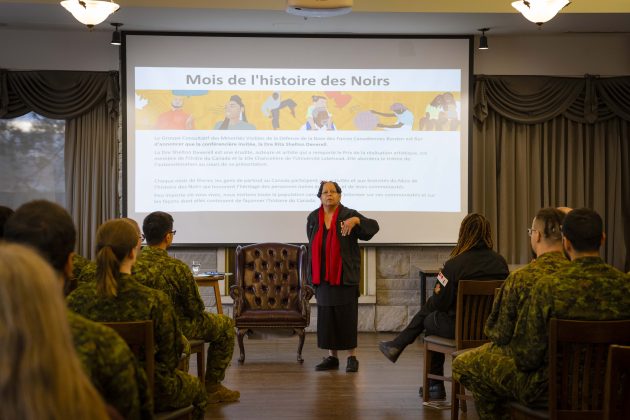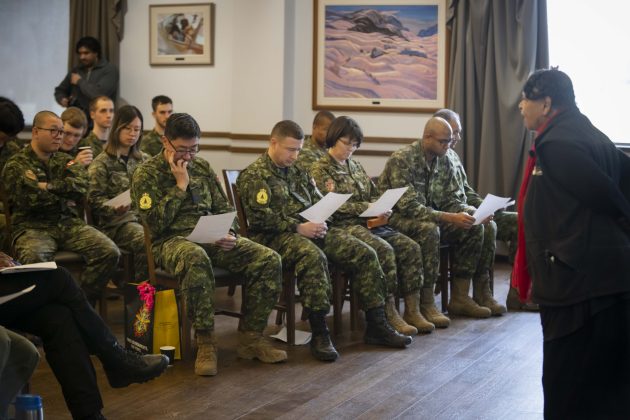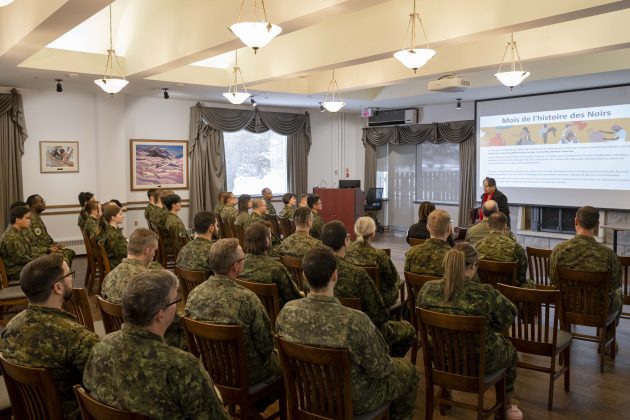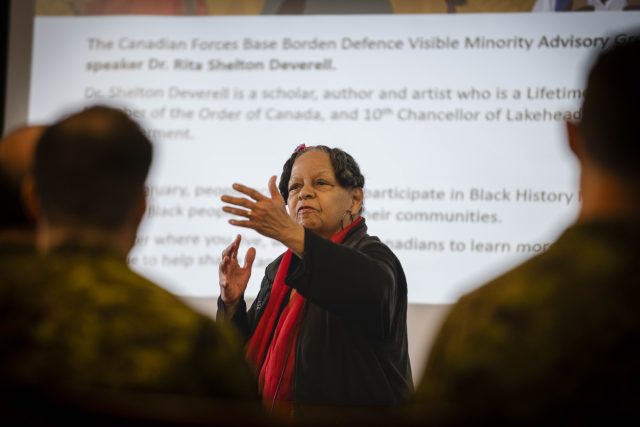
Dr. Rita Shelton Deverell sparked a forward-thinking discussion on the power of diverse leadership on CFB Borden
Diversity, equity, and inclusion are fundamental values in a multicultural and ethnically diverse workplace, and the Canadian Armed Forces (CAF) embrace these principles.
Members of CFB Borden gathered at the Waterloo Officer’s Mess on 7 February to learn from Dr. Rita Shelton Deverell, a journalist, professor, actor, author, scholar, and artist.
Born in Houston, Texas, in 1945, Dr. Deverell’s career began at CBC TV in 1973, making history as one of Canada’s first Black women television hosts and network executives.
Dr. Deverell has been recognized for her lifetime of artistic achievement with numerous awards, including the Governor General’s Performing Arts Awards Gala Lifetime Artistic Achievement Award in Broadcasting and Film in 2022.
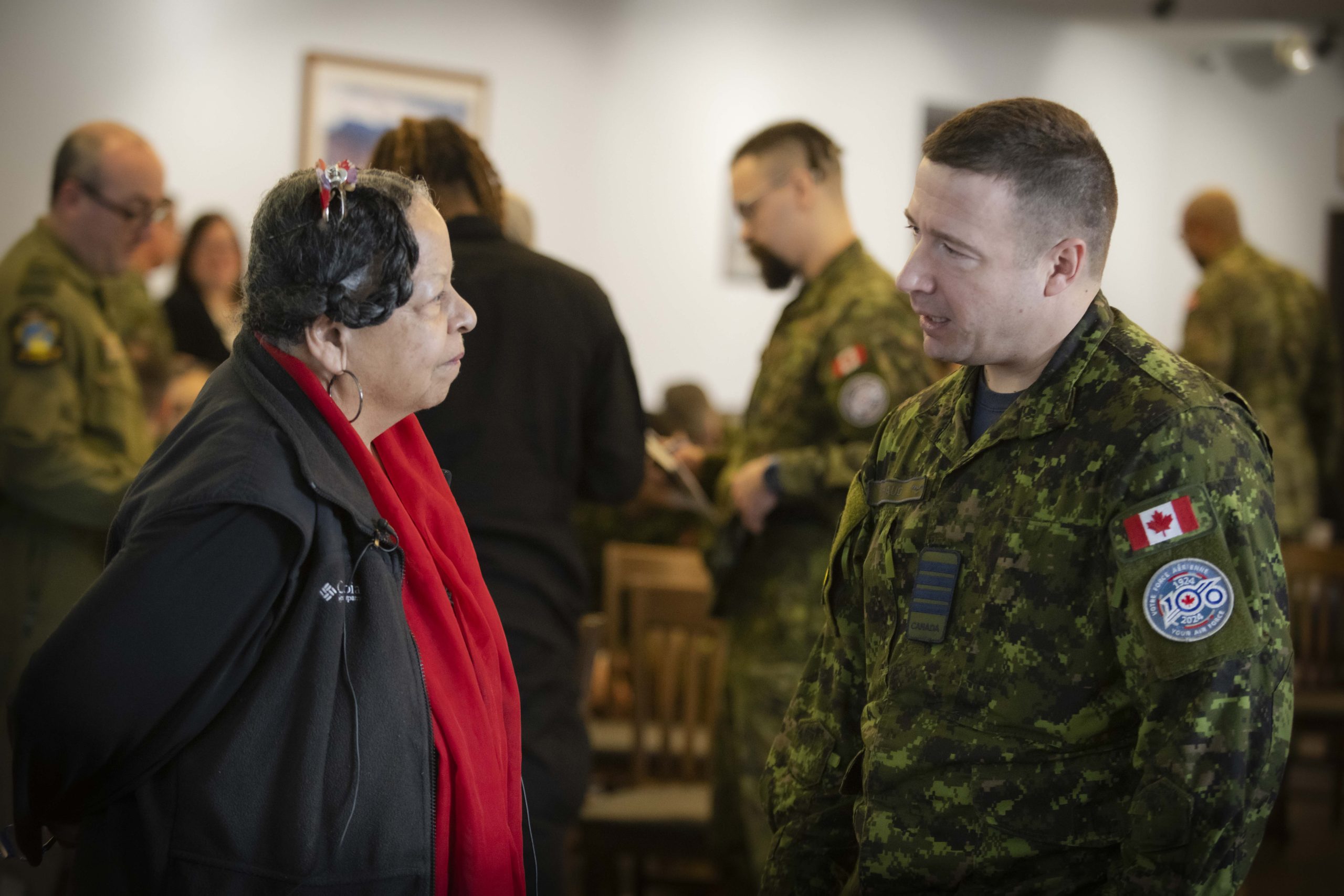
As a co-founder of VisionTV, the world’s first multifaith and multicultural network, Dr. Shelton has been a leading advocate for diversity and social justice. Her storytelling extends beyond television to theatre and education, where she has continued to impact as a mentor, author and academic, holding positions such as Lakehead University’s 10th chancellor and serving on the Board of Directors for CBC/Radio-Canada.
Her notable contributions have earned her a place as a member of the Order of Canada, showcasing her dynamic career and dedication to breaking barriers and fostering inclusivity. Upon visiting CFB Borden on behalf of the Defense Visible Minority Advisory Group (DVMAG), Dr. Deverell shared her family ties to the military, including memories of her uncle from Texas, who served in the U.S. Army, and father-in-law from Orillia, Ont. who served in the CAF.
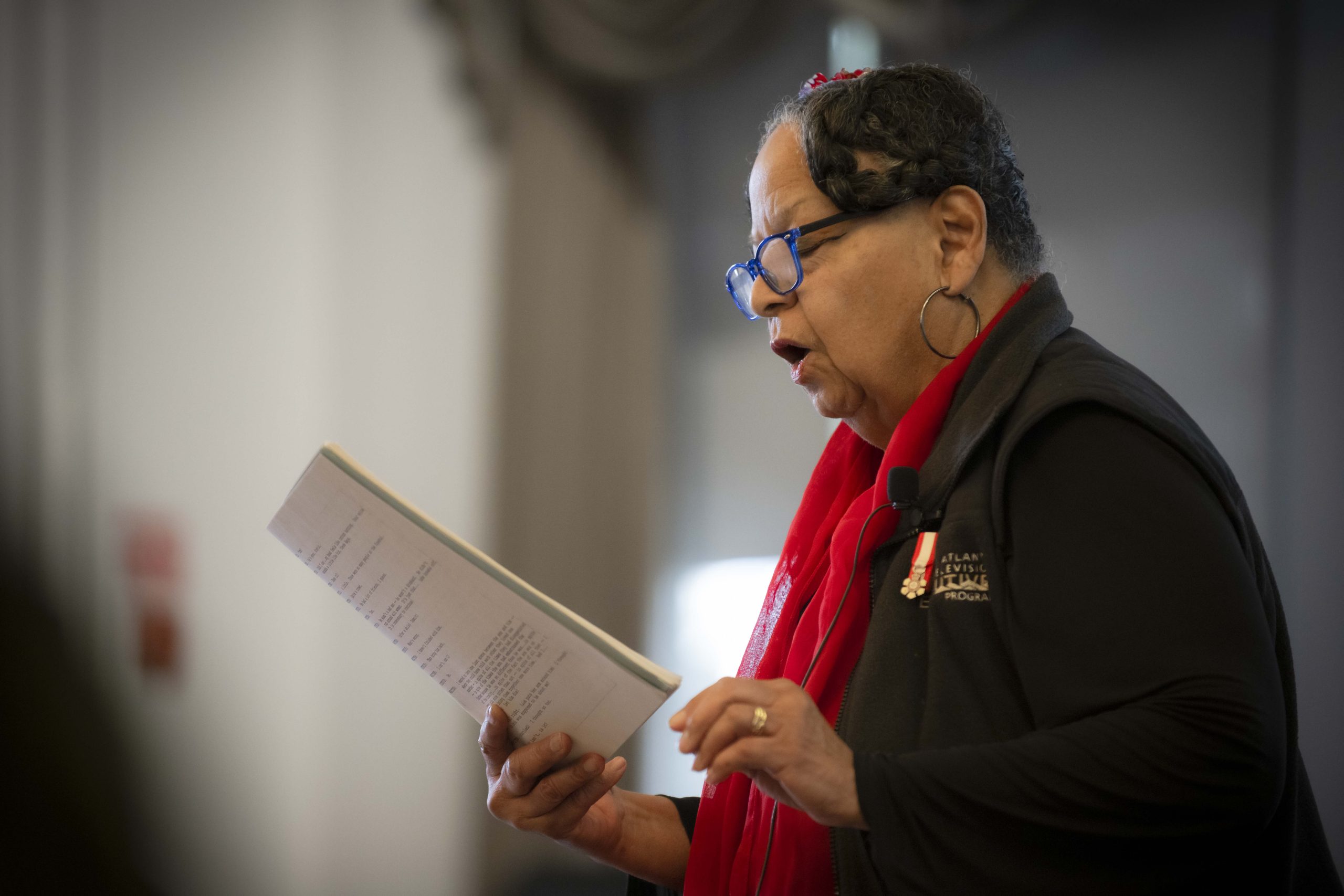
“I am quite illiterate about a lot of what goes on in your world and then I thought: ‘Maybe not that illiterate’,” Dr. Deverell said. “My world is media and theatre and that’s what I’ve done for 55 years. Where I think there is an intersection is over styles of leadership, styles of authority and styles of being inclusive or exclusive.”
Collective versus hierarchal decision making was a recurring theme throughout the event and Dr. Deverell made her audience consider how leadership styles can be either empowering or demeaning and that positive change is possible for any organization.
“You don’t have to spend much time worrying about all the stuff you don’t know,” said Dr. Deverell. “This is the kind of evolution that is available to all of us as we are on the path of equity, diversity and inclusion, as opposed to the destination. The trick is to stay on the path.”
Dr. Deverell noted that despite her uncle and father-in-law having different backgrounds, their main war stories weren’t about combat, but about their imaginative contributions outside the war that impacted the collective.
The lecture-turned-group discussion invited members to consider the benefits of the collective as opposed to the hierarchy.
“I’d like to start with a question: What is it we want to change?” Dr. Deverell said.
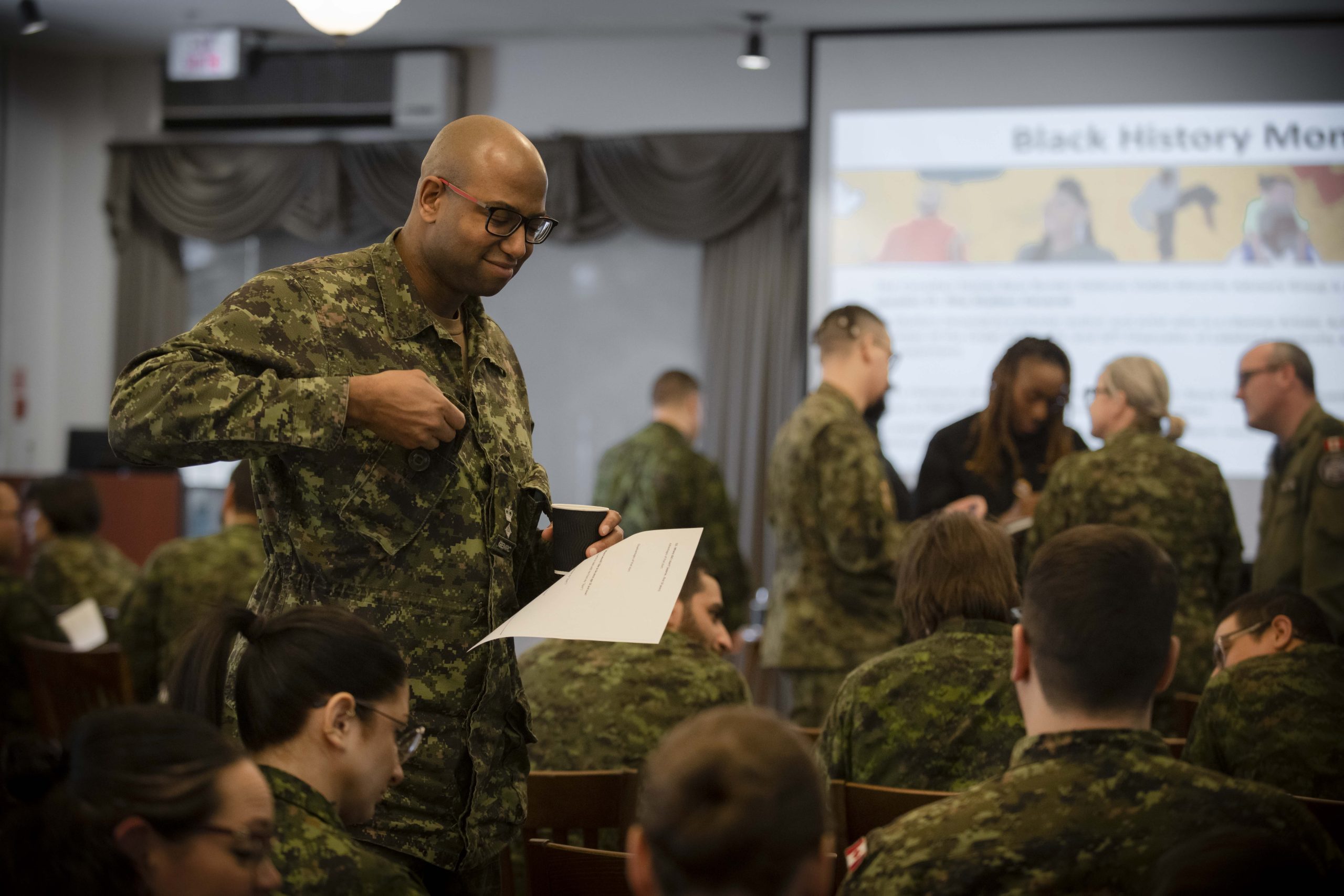
Upon asking the question, members in attendance were given a handout to spark discussion and it began with the advantages and disadvantages that each person started their life with.
“Think through what you would like to carry forward from where we started and what you would like to leave behind,” Dr. Deverell said.
The conversation blossomed into a time of reflection on personal privileges that could benefit the collective and redirect “power” to those without it by sharing said advantages.
To instill forward thinking, the final question from Deverell asked the audience to think about what underdeveloped skills and characteristics would help push the needle of inclusion, diversity, and equity within the CAF.
“My job is to advantage everyone, not withhold,” Deverell said. “Advantaging everyone is about empowerment, and it empowers everyone to do so.”
By: Caleb Hooper

